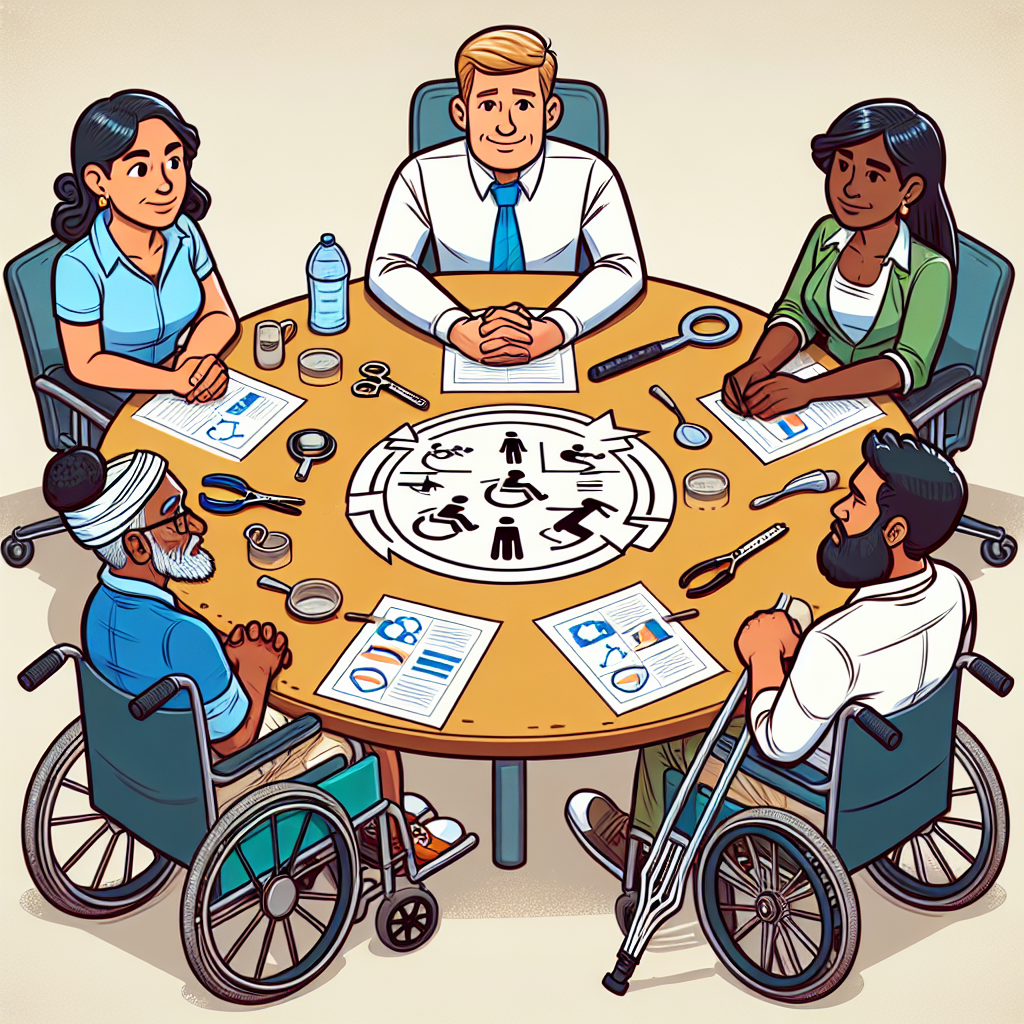Ethiopia Advances Disability-Inclusive Health Services with Successful WHO-Led Workshop
The workshop, held from November 25-26, was a direct response to the Ethiopian Ministry of Health's call to integrate disability inclusion into the country's healthcare services.

A two-day workshop on advancing disability-inclusive health services, held in Adama City, concluded with significant progress towards improving health equity for persons with disabilities in Ethiopia. Organized by the World Health Organization (WHO) in partnership with the Ethiopian Ministry of Health (MOH) and Humanity and Inclusion (HI), the event marked a vital step in integrating disability inclusion into Ethiopia’s national health system.
Workshop Focused on Health Equity and Disability Inclusion
The workshop, held from November 25-26, was a direct response to the Ethiopian Ministry of Health's call to integrate disability inclusion into the country's healthcare services. The event launched the first phase of WHO’s Health Equity for Persons with Disabilities: Guide for Action, a framework designed to enhance health outcomes for individuals with disabilities. This framework supports the development of policies and initiatives aimed at reducing health disparities for people with disabilities.
Key Stakeholders Collaborate for a Unified Approach
Bringing together 37 participants from various organizations, the workshop attracted stakeholders from the Ministry of Health, regional health bureaus, the Federation of Ethiopian Associations of Persons with Disabilities (FEAPD), and several local and international NGOs, including Humanity and Inclusion (HI), International Committee of the Red Cross (ICRC), Christian Blind Mission (CBM), Cheshire Ethiopia, and Clinton Health Access Initiative (CHAI). This diverse group participated in discussions aimed at developing practical strategies for addressing the barriers to healthcare faced by persons with disabilities.
Mapping Challenges and Designing Solutions
The core of the workshop’s discussions centred on fostering a deeper understanding of the challenges that persons with disabilities encounter in accessing health services. These challenges include physical, communication, and attitudinal barriers, which hinder effective healthcare delivery. Through collaborative dialogue, the participants explored actionable strategies to address these gaps and ensure equitable access to health services for all individuals.
Building on WHO's Global Recommendations for Health Equity
This workshop was built upon the 40 key recommendations from WHO’s Global Report on Health Equity for Persons with Disabilities, which emphasizes the need for inclusive policies, targeted resource allocation, and sustainable programs. The recommendations are geared towards eliminating health inequities by promoting systemic change across the health sector.
Achievements and Milestones
Several important milestones were achieved during the workshop. Notably, participants mapped out organizations and partners currently working on health and disability-related issues in Ethiopia, creating a clearer picture of the collaborative landscape. They also received in-depth guidance on the Disability Inclusion Guide for Action, a strategic tool for integrating disability considerations into the health sector.
A significant outcome of the workshop was the formation of a National Technical Working Group led by the Ministry of Health. This group will drive the next steps in the initiative, including a detailed situational assessment of the current state of disability-inclusive health services in Ethiopia.
Next Steps Toward Transformational Change
Following the workshop, the National Technical Working Group will begin assessing the state of Ethiopia's health system in relation to disability inclusion. This assessment will inform the development of a comprehensive action plan based on WHO’s recommendations and the insights gained during the workshop. A monitoring and evaluation framework will also be established to ensure the effectiveness of the implemented strategies.
Ethiopia’s commitment to promoting disability-inclusive health services is aligned with its obligations under the United Nations Convention on the Rights of Persons with Disabilities (CRPD), as well as its broader efforts to achieve the Sustainable Development Goals (SDGs) related to health and well-being.
A Path Toward an Inclusive Health System
This workshop sets the stage for transformational change in Ethiopia’s health sector, offering hope for a more inclusive system that meets the needs of all Ethiopians, regardless of their abilities. By embedding disability inclusion within health systems, Ethiopia is not only making strides toward better healthcare but is also ensuring that persons with disabilities are not left behind in the country’s development trajectory.
As the next phase of implementation begins, Ethiopia’s proactive approach to disability-inclusive health services signals a positive shift toward equality, accessibility, and the empowerment of persons with disabilities.
- READ MORE ON:
- Ethiopia










